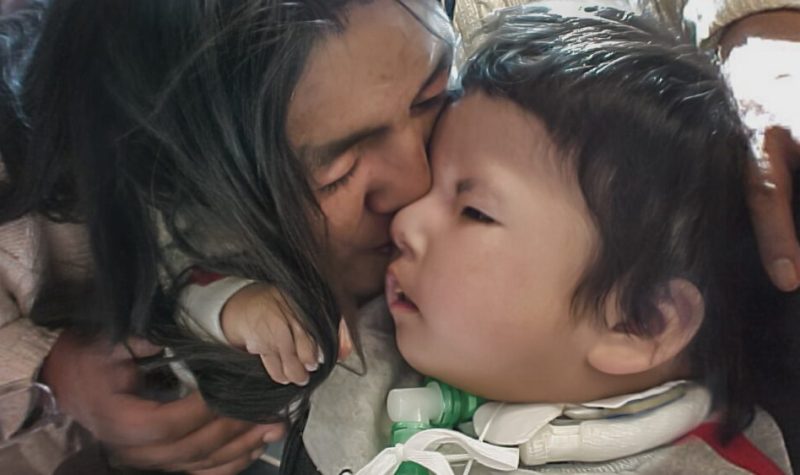By David P. Ball
Award-winning Abenaki documentarian reflects on her new film on children's rights, words of wisdom for Downtown Eastside leaders and 30 years since filming the Kanesatake standoff.
One of the country's most renowned Indigenous filmmakers offered words of courage to Indigenous women battling for the rights of their children and for their missing and murdered loved ones: don't give up hope, because "nothing is impossible" when people fight for what is right.
Addressing women in particular in Vancouver's Downtown Eastside, Abenaki Nation director Alanis Obomsawin — whose latest film, "Jordan River Anderson, The Messenger", won best Canadian documentary award at the most recent Vancouver International Film Festival — told The Pulse on CFRO that the strength that she's seen in Indigenous warriors on the frontlines across the country in thirty years of filmmaking are reason for hope.
"Believe in yourself, knowing what's right and wrong, and when you see something wrong, you speak up," she said in an interview. "I've learned and know more and more that everything is possible. Don't come and tell me what's impossible, because you have a warrior who's going to prove you otherwise."
For three decades, Obomsawin has documented the human rights struggles of many fellow Indigenous people, offering a first-hand view of historic national upheavals and standoffs that have transformed the country. Her most recent films have focused on injustices against Indigenous children and stories of inspiration and activism.
Obomsawin has had a front row seat to major historic events. This week marks the 30th anniversary of Canada sending in the army to confront Mohawks who blockaded and stood up with allies from First Nations across the country, an historic confrontation over a golf course expansion into a Mohawk sacred area and burial ground later known as the "Oka Crisis."
Obomsawin rose to fame for her front-line, in-the-trenches film about the standoff, "Kanesatake: 270 Years of Resistance."
The Quebec-based director's newest film follows the story of Anderson, a child with developmental disabilities who died in a Winnipeg hospital, not with his First Nations family, because the federal and provincial governments refused to accept responsibility for or agree on the costs of his care as an Indigenous child.
The case led to a national campaign for Indigenous children's rights, numerous rulings against Canada at the Canadian Human Rights Tribunal, and eventually a unanimous law passed, named after Anderson, known as "Jordan's Principle."
"It was very important that these stories be told as they happened, I documented virtually everything that went on," she said. "It was so heartbreaking, but at the end Jordan became like a king, even though he was a little baby.
"It was his case that really forced changes; this is why I called him 'the messenger' … It brought changes — real changes."
Although that historic legislation offered thousands of Indigenous families hope their children would not die alone far from their communities and families, its recommendations have not been fully implemented — because the federal government continues to challenge ruling after ruling at the Tribunal pointing to its failure to offer equal treatment of Indigenous and non-Indigenous children.
"Anyone who knows this is unjust, that this is ugly and this shouldn't be — whether you are Indigneous people or of other colours who are looked down upon — stand up and say it, don't be afraid," Obomsawin told The Pulse. "Because when you're afraid or you don't want to be bother, you do nothing. And I don't know how you can sleep when children are disadvantaged.
"You cannot allow this. People have gone through that for so many generations," she said. "Now, more and more, people fight back."


